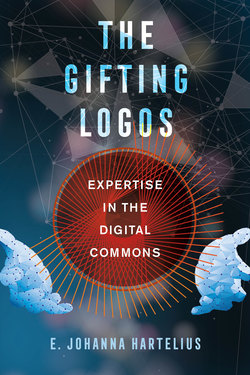The Gifting Logos

Реклама. ООО «ЛитРес», ИНН: 7719571260.
Оглавление
E. Johanna Hartelius. The Gifting Logos
Отрывок из книги
The Gifting Logos
Expertise in the Digital Commons
.....
Nietzsche’s theory of the gift in both forms explicated here posits desperation as a motive. Zarathustra’s impulse to give away his wisdom reflects how, as a cup that overflows, he “wants to become empty again,” which is to say that he “wants to become man again.”85 With his gift still intact, he is something other than a man. His gift (of wisdom) is onerous, setting him aside from the humans. He is like a bee burdened with too much honey. The gift is a compulsion, however, and Zarathustra discovers that his wisdom cannot be received. He complains that his “happiness in giving died in giving.”86 The humans’ system of gifts, as demonstrated in Zarathustra’s lectures, is inextricably tied to the meanings of virtue, which entail punishment, justice, and reward—all of which are learned from fools and liars.87 Those who give do so in an effort to control the actions of those whom they pity. Those who receive begin to resent the experience of obligation. Givers and receivers alike, Nietzsche intimates, are drawn to and trapped in sociality. There, humans can actually wield gifts in a symbolically coherent way, in contrast to the wisdom-gift that Zarathustra offers. The trouble is that the ways in which they wield the wisdon gift only recommit them to good and evil.88
Marcel Mauss: In Praise of the Noble Expenditure (1925)
.....